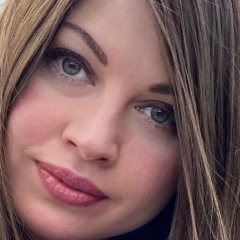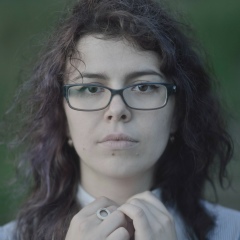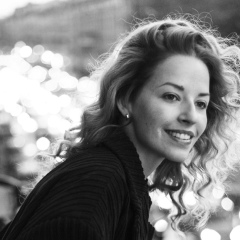9 мая - День Победы
Мой двоюродный дед Дмитрий Романович Чудиновских (старший брат деда Геннадия Романовича)
Родился в 1918 году. На фронт ушёл в первый день войны, 23 июня 1941.
Моя первая встреча с Дмитрием произошла, когда мне было 10 лет, а ему 76. Он жил рядом с селом Чудиново, держал корову, овец, кур и заботился о лежачей больной, даже не родственнице. Там я впервые попарился в бане и пытался пасти коров. Он был и остаётся самым верующим человеком, которого я когда-либо встречал. Перед каждым приёмом пищи мы читали "Отче наш", и даже старый слепой кот ждал окончания молитвы, чтобы приступить к трапезе.
На сайте http://podvignaroda.ru я обнаружил, что Дмитрий в войну получил Орден Красной Звезды (март 1945), получил контузию, вернулся на войну и получил Медаль «За отвагу» (май 1945). Он был простым красноармейцем, но выполнял задачи по обнаружению в лесах вражеской техники противника - т.е. был разведчиком.
После войны стал очень верующим, был старостой церкви в Чудиново. В В 88 лет ещё ходил пешком крестный ход (уже с палочками). В 2010 году я виделся с ним уже после того, как он оставил хозяйство и ушёл в монастырь в селе Великорецкое. Ему дали монашеское имя Моисей.
А далее я приведу цитату из ещё не изданной книги [id4132055|отца] "Как я прожил эту жизнь":
В великорецком монастыре Дмитрию жить нравилось, его там уважали. В наш приезд в 2005 году он водил нас на кладбище возле монастыря, показывал место, где хотел быть похоронен. Но в монастыре он прожил недолго. В 2011 году скончался епископ вятский и слободской Хрисанф. На его место был назначен епископ Марк из Хабаровска (в миру Алексей Викторович Тужиков). Он начал наводить свои порядки, ставя во главу угла финансовые интересы. Приехав в великорецкий монастырь, он распорядился в отношении Дмитрия, что монастырь не дом престарелых, у Дмитрия есть дочь, которая обязана его содержать. Таким образом, Дмитрия, несмотря на все его заслуги перед православной церковью, несмотря на то, что ел он совсем мало и занимал крохотную комнатку под колокольней, выгнали из любимого им монастыря и привезли в Киров к дочери Капитолине. После этого он как-то сник, утратил интерес к жизни. К тому же ему, всю жизнь прожившему в деревне, жить в городе было непривычно и тоскливо.
В 2014 году Дмитрий скончался и был похоронен в Кирове на Макарьевском кладбище. До ста лет Дмитрий не дожил 4 года, а его брат Степан, умерший в том же году – 3 года.
Мой двоюродный дед Дмитрий Романович Чудиновских (старший брат деда Геннадия Романовича)
Родился в 1918 году. На фронт ушёл в первый день войны, 23 июня 1941.
Моя первая встреча с Дмитрием произошла, когда мне было 10 лет, а ему 76. Он жил рядом с селом Чудиново, держал корову, овец, кур и заботился о лежачей больной, даже не родственнице. Там я впервые попарился в бане и пытался пасти коров. Он был и остаётся самым верующим человеком, которого я когда-либо встречал. Перед каждым приёмом пищи мы читали "Отче наш", и даже старый слепой кот ждал окончания молитвы, чтобы приступить к трапезе.
На сайте http://podvignaroda.ru я обнаружил, что Дмитрий в войну получил Орден Красной Звезды (март 1945), получил контузию, вернулся на войну и получил Медаль «За отвагу» (май 1945). Он был простым красноармейцем, но выполнял задачи по обнаружению в лесах вражеской техники противника - т.е. был разведчиком.
После войны стал очень верующим, был старостой церкви в Чудиново. В В 88 лет ещё ходил пешком крестный ход (уже с палочками). В 2010 году я виделся с ним уже после того, как он оставил хозяйство и ушёл в монастырь в селе Великорецкое. Ему дали монашеское имя Моисей.
А далее я приведу цитату из ещё не изданной книги [id4132055|отца] "Как я прожил эту жизнь":
В великорецком монастыре Дмитрию жить нравилось, его там уважали. В наш приезд в 2005 году он водил нас на кладбище возле монастыря, показывал место, где хотел быть похоронен. Но в монастыре он прожил недолго. В 2011 году скончался епископ вятский и слободской Хрисанф. На его место был назначен епископ Марк из Хабаровска (в миру Алексей Викторович Тужиков). Он начал наводить свои порядки, ставя во главу угла финансовые интересы. Приехав в великорецкий монастырь, он распорядился в отношении Дмитрия, что монастырь не дом престарелых, у Дмитрия есть дочь, которая обязана его содержать. Таким образом, Дмитрия, несмотря на все его заслуги перед православной церковью, несмотря на то, что ел он совсем мало и занимал крохотную комнатку под колокольней, выгнали из любимого им монастыря и привезли в Киров к дочери Капитолине. После этого он как-то сник, утратил интерес к жизни. К тому же ему, всю жизнь прожившему в деревне, жить в городе было непривычно и тоскливо.
В 2014 году Дмитрий скончался и был похоронен в Кирове на Макарьевском кладбище. До ста лет Дмитрий не дожил 4 года, а его брат Степан, умерший в том же году – 3 года.
May 9 - Victory Day
My cousin Grandfather Dmitry Romanovich Chudinovskikh (the elder brother of grandfather Gennady Romanovich)
Born in 1918. He went to the front on the first day of the war, June 23, 1941.
My first meeting with Dmitry occurred when I was 10 years old and he was 76. He lived near the village of Chudinovo, kept a cow, sheep, chickens and took care of a bed patient, not even a relative. There I first steamed in the bath and tried to graze the cows. He was and remains the most religious person I have ever met. Before each meal, we read Our Father, and even the old blind cat was waiting for the end of the prayer to begin the meal.
On the site http://podvignaroda.ru I found that Dmitry received the Order of the Red Star during the war (March 1945), received concussion, returned to war and received the Medal "For Courage" (May 1945). He was a simple Red Army soldier, but he performed the tasks of detecting enemy technology in the forests - i.e. was a scout.
After the war he became a very believer, was the head of the church in Chudinovo. At 88 years old, a religious procession (already with sticks) was still walking. In 2010, I saw him after he left the farm and went to a monastery in the village of Velikoretskoye. He was given the monastic name of Moses.
And then I’ll quote from an unreleased book [id4132055 | father] "How I Lived This Life":
Dmitry liked to live in the Velikoretsky monastery, he was respected there. On our arrival in 2005, he took us to a cemetery near the monastery, showed us the place where he wanted to be buried. But he did not live long in the monastery. In 2011, the bishop of Vyatka and Sloboda Chrysanthus died. In his place was appointed Bishop Mark of Khabarovsk (in the world Aleksey Viktorovich Tuzhikov). He began to restore his order, putting financial interests at the forefront. Arriving at the Great Monastery, he ordered in respect of Dmitry that the monastery is not a nursing home, Dmitry has a daughter who is obliged to support him. Thus, Dmitry, despite all his merits to the Orthodox Church, despite the fact that he ate very little and occupied a tiny room under the bell tower, was expelled from his beloved monastery and brought to Kirov to his daughter Capitoline. After that, he somehow wilted, lost interest in life. In addition, he, who had lived all his life in the village, was unusual and sad to live in the city.
In 2014, Dmitry died and was buried in Kirov at the Makaryevsky cemetery. Dmitry did not live up to a hundred years old for 4 years, and his brother Stepan, who died in the same year - 3 years.
My cousin Grandfather Dmitry Romanovich Chudinovskikh (the elder brother of grandfather Gennady Romanovich)
Born in 1918. He went to the front on the first day of the war, June 23, 1941.
My first meeting with Dmitry occurred when I was 10 years old and he was 76. He lived near the village of Chudinovo, kept a cow, sheep, chickens and took care of a bed patient, not even a relative. There I first steamed in the bath and tried to graze the cows. He was and remains the most religious person I have ever met. Before each meal, we read Our Father, and even the old blind cat was waiting for the end of the prayer to begin the meal.
On the site http://podvignaroda.ru I found that Dmitry received the Order of the Red Star during the war (March 1945), received concussion, returned to war and received the Medal "For Courage" (May 1945). He was a simple Red Army soldier, but he performed the tasks of detecting enemy technology in the forests - i.e. was a scout.
After the war he became a very believer, was the head of the church in Chudinovo. At 88 years old, a religious procession (already with sticks) was still walking. In 2010, I saw him after he left the farm and went to a monastery in the village of Velikoretskoye. He was given the monastic name of Moses.
And then I’ll quote from an unreleased book [id4132055 | father] "How I Lived This Life":
Dmitry liked to live in the Velikoretsky monastery, he was respected there. On our arrival in 2005, he took us to a cemetery near the monastery, showed us the place where he wanted to be buried. But he did not live long in the monastery. In 2011, the bishop of Vyatka and Sloboda Chrysanthus died. In his place was appointed Bishop Mark of Khabarovsk (in the world Aleksey Viktorovich Tuzhikov). He began to restore his order, putting financial interests at the forefront. Arriving at the Great Monastery, he ordered in respect of Dmitry that the monastery is not a nursing home, Dmitry has a daughter who is obliged to support him. Thus, Dmitry, despite all his merits to the Orthodox Church, despite the fact that he ate very little and occupied a tiny room under the bell tower, was expelled from his beloved monastery and brought to Kirov to his daughter Capitoline. After that, he somehow wilted, lost interest in life. In addition, he, who had lived all his life in the village, was unusual and sad to live in the city.
In 2014, Dmitry died and was buried in Kirov at the Makaryevsky cemetery. Dmitry did not live up to a hundred years old for 4 years, and his brother Stepan, who died in the same year - 3 years.








У записи 103 лайков,
0 репостов,
1504 просмотров.
0 репостов,
1504 просмотров.
Эту запись оставил(а) на своей стене Роман Чудиновских






































































